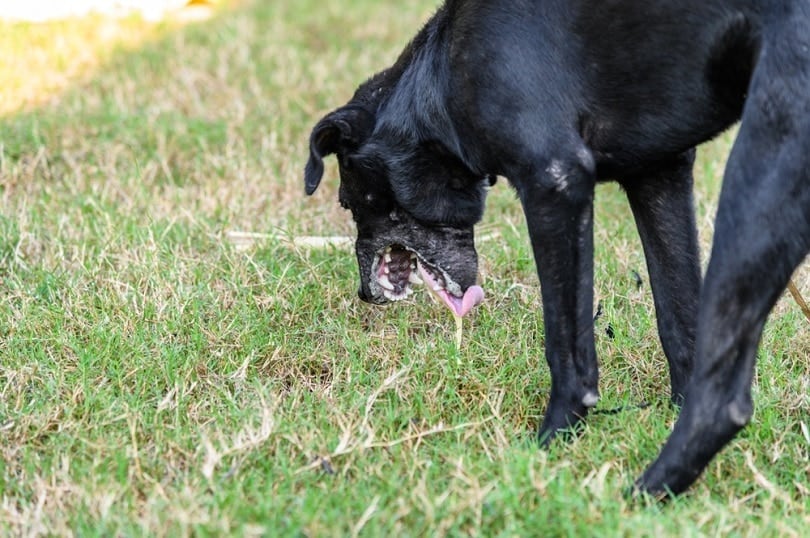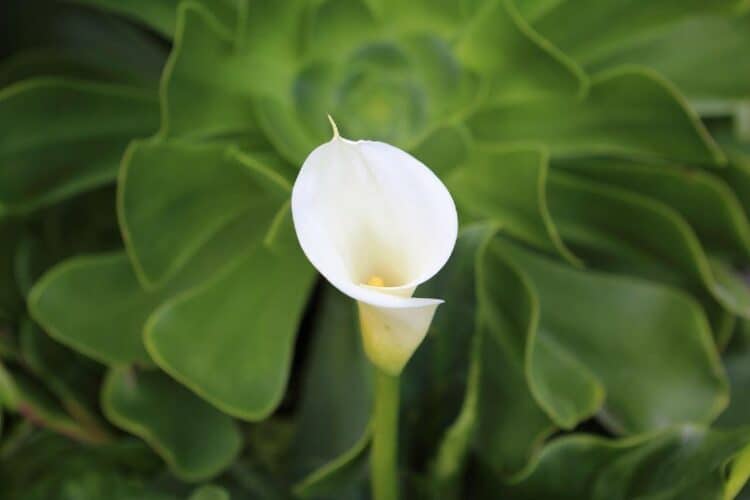If you have a dog, you may have wondered if calla lilies are poisonous to them. The short answer is yes, calla lilies are considered poisonous to dogs. That being said, cases of dogs dying from eating lilies are rare. If your dog eats a calla lily, they will likely experience vomiting, diarrhea, and abdominal pain. In severe cases, they may also experience seizures or cardiac arrhythmias.
If you think your dog has eaten a calla lily, keep a close eye on them and contact your veterinarian or the ASPCA Animal Poison Control Center if you notice any symptoms or behavioral changes.
Why Are Calla Lilies Poisonous to Dogs?
The toxic principle in calla lilies is unknown, but it is thought to be similar to that of other true lilies (such as Easter lilies, tiger lilies, and stargazer lilies). Other lilies are believed to contain lycorine, a toxic compound that can cause severe kidney damage in dogs. Calla lilies also contain Insoluble calcium oxalate crystals, which can cause irritation and swelling of the mouth and throat.
What Part Of The Calla Lily Is Poisonous To Dogs?
All parts of the plant are poisonous, but the bulb is the most toxic. Even a small amount of bulb can cause toxicity in dogs. The least toxic part of the plant is the flower, but it still contains some toxins that can cause vomiting and diarrhea.

What Are the Clinical Signs of Calla Lily Poisoning in Dogs?
- Vomiting
- Diarrhea
- Abdominal pain
- Seizures
- Cardiac arrhythmias
The most common clinical signs of calla lily poisoning in dogs are vomiting, diarrhea, and abdominal pain. In severe cases, dogs may also experience seizures or cardiac arrhythmias.
Will My Dog Die If They Eat Calla Lily?
If your dog eats a calla lily, they will likely experience vomiting, diarrhea, and abdominal pain. If treated in time, most dogs will recover from calla lily poisoning. However, in severe cases, dogs may die from cardiac arrhythmias or kidney failure. If you think your dog has eaten a calla lily, please contact your veterinarian or the ASPCA Animal Poison Control Center immediately.
How is Calla Lily Poisoning Diagnosed in Dogs?
If you suspect your dog has eaten a calla lily, please contact your veterinarian or the ASPCA Animal Poison Control Center immediately. Your veterinarian will likely recommend bringing your dog in for an examination and will ask you about their recent history and clinical signs. A complete blood count, biochemistry profile, and urinalysis will likely be performed to assess your dog’s overall health and to look for any evidence of kidney damage. Your dog may also need to have an electrocardiogram (ECG) to check for cardiac arrhythmias.
How Is Calla Lily Poisoning Treated in Dogs?
There is no specific antidote for calla lily poisoning in dogs. Treatment will be based on the symptoms your dog is exhibiting. If your dog is vomiting, they will likely be given antiemetics to help control it. Diarrhea may be treated with diphenoxylate/atropine (Lomotil®) or loperamide (Imodium®). Severely affected dogs may need to be hospitalized for IV fluid therapy and close monitoring. In some cases, blood transfusions may be necessary.
How Can I Prevent Calla Lily Poisoning in Dogs?
The best way to prevent calla lily poisoning in dogs is to keep them away from the plants. If you have calla lilies in your home or garden, make sure they are out of your dog’s reach. If you think your dog has eaten a calla lily, please contact your veterinarian or the ASPCA Animal Poison Control Center immediately.

Standard Diet and Nutrition Needs For Dogs
Dogs need a balanced diet that includes all the nutrients they need to stay healthy. A good quality dog food should have all the nutrients your dog needs. If you are unsure about what to feed your dog, please consult your veterinarian. In general, look for a dog food with the following:
Protein: Dogs need protein for muscle development and repair. Protein can be found in meat, poultry, fish, eggs, and dairy products. It should be listed in the top three ingredients, preferably the first ingredient.
Fat: Dogs need fat for energy, to keep their skin and coat healthy, and to absorb vitamins. Fat can be found in meat, poultry, fish, dairy products, and certain oils.
Carbohydrates: Dogs need carbohydrates for energy and to maintain their digestive health. Carbohydrates can be found in grains, fruits, and vegetables.
Vitamins and Minerals: Dogs need vitamins and minerals for a variety of functions, including vision, immunity, and bone development.
Conclusion
Calla lilies are poisonous to dogs and can cause vomiting, diarrhea, and abdominal pain. In severe cases, dogs may also experience seizures or cardiac arrhythmias. If you think your dog has eaten a calla lily, please contact your veterinarian or the ASPCA Animal Poison Control Center immediately.
Featured Image Credit: Pixabay
















